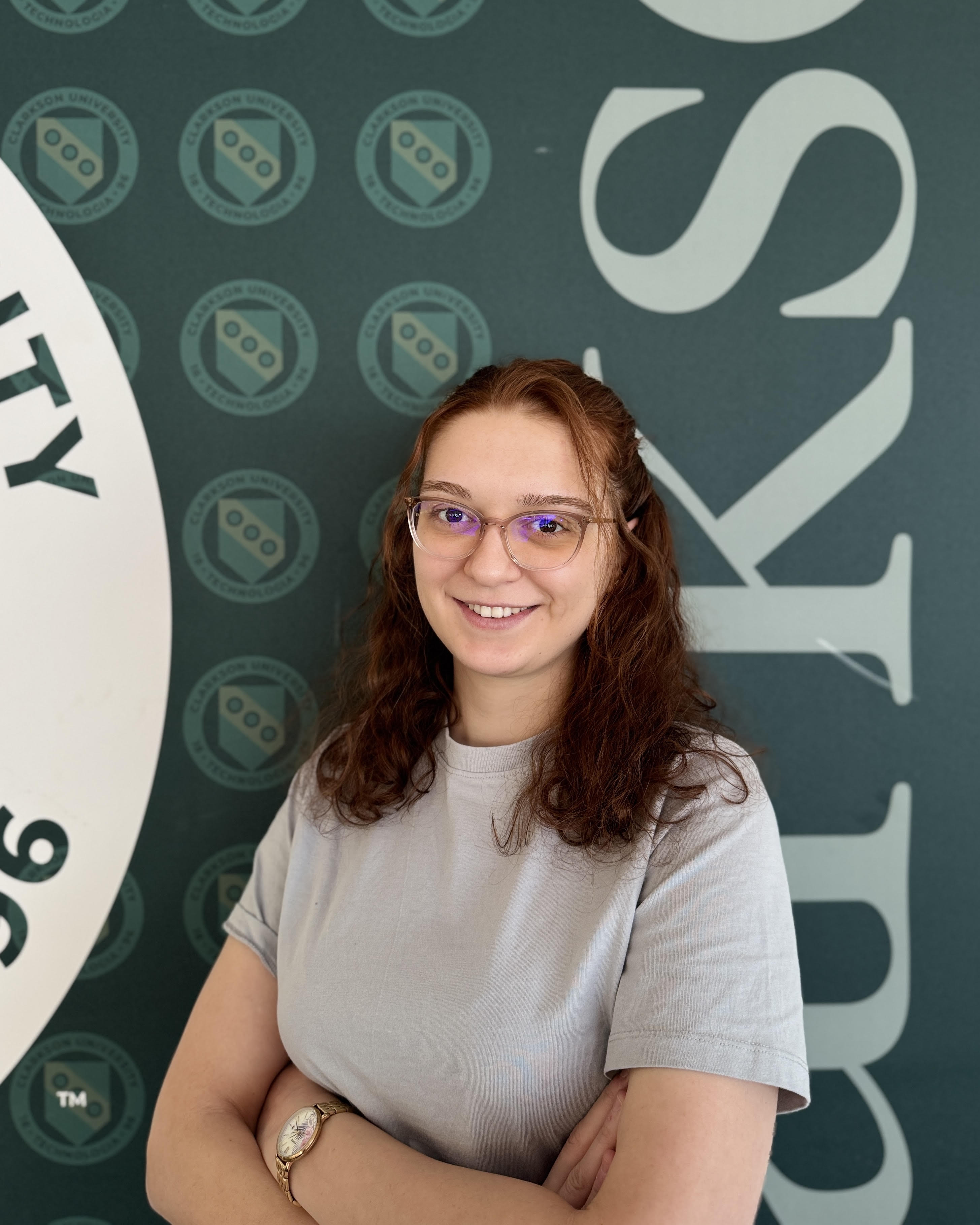Clarkson University Student Wins Travel Award to Present Research on Phosphorus Adsorption and Mitigating Harmful Algal Blooms at Annual Green Chemistry & Engineering Conference
Clarkson University Graduate Chemistry Student Ulfet Erdogan, working in the laboratory of Silvana Andreescu, the Egon Matijevic Chair in the Department of Chemistry and Biochemistry at Clarkson, will present research into using modified plant wastes to adsorb phosphorus pollution, which can help mitigate harmful algal blooms (HABs).

Phosphorus is essential for life and food production as an irreplaceable fertilizer. However, increased phosphorus usage has worsened water eutrophication, which occurs when an environment becomes enriched with nutrients, increasing the amount of plant and algae growth to estuaries and coastal waters. Eutrophication can trigger issues such as HABs.
HABs exhibit enormous threats to human health, animals, and aquatic ecosystems. Climate change and accelerated eutrophication are considered to exaggerate the outbreaks of HABs. HABs can cause various negative health effects, from mild skin rashes to serious illnesses.
“Our study aims to develop sustainable phosphorus adsorbents derived from plant-based and waste materials to mitigate phosphorus pollution in eutrophic waters,” Erdogan said. “By modifying plant wastes such as coffee grounds, woodchips, and luffa with nanostructures, the adsorbents can efficiently capture and remove phosphorus from eutrophic water.”
Phosphorus is a vital resource, but is finite and unevenly distributed worldwide. The European Commission has classified Phosphorus as a critical raw material. Erdogan said recent projections indicate Phosphorus reserves may be depleted within the next 300 to 400 years. Establishing sustainable recovery methods not only helps prevent mitigation of HABs, but also is crucial in reusing the resource effectively.
“Once recovered, the phosphorus can be repurposed as fertilizer, thereby sustaining its cycle,” Erdogan explained. “This approach not only upcycles waste and reduces phosphorus pollution but also helps curb the incidence of HABs, protecting aquatic ecosystems.”
Erdogan received the 2025 Ciba Travel Award from the Green Chemistry Institute at the American Chemical Society. This award funds her trip to present her research at the Annual Green Chemistry & Engineering (GC&E) Conference in Pittsburgh, Pennsylvania from June 23-26, 2025.
“I could not be more proud of my students. This award is a testament of their hard work, and a recognition of the quality and reputation of our research in the chemistry and sustainability community,” said Andreescu.
Andreescu and her research team are developing smart sensors and sustainable materials for environmental monitoring and remediation. More details about the group’s research and opportunities can be found here.
